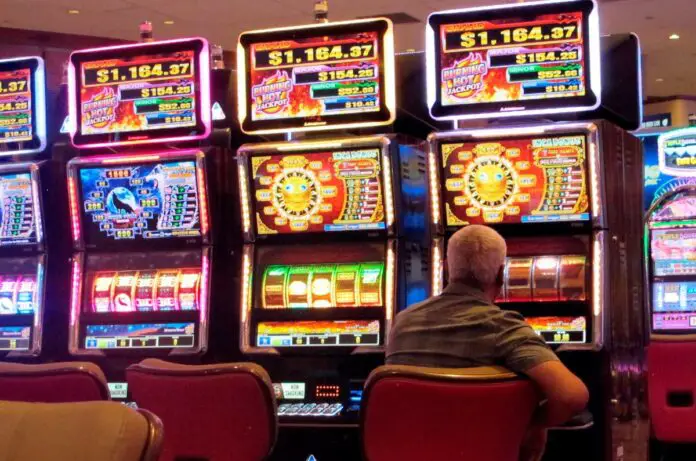The specialized health magazine The Lancet Public Health estimated that around 80 million people worldwide are addicted to gambling. In Yucatán, an organization working against this vice only attends to 35 to 40 patients, but the situation is serious in Mérida.
The severity of this mental illness is evident in the influx of people to gambling sites in the city, and digital betting apps have exacerbated the problem. Demand is so high that there are reports of new gambling sites opening in the state capital.
Jorge, a member of the “Vuelve a vivir” (Live Again) group for rehabilitated anonymous gamblers in Mérida, has been working with the group for 12 years. He has seen gambling addiction grow disproportionately due to the addiction of Yucatecans to games of chance and betting.
This large market in Mérida and Yucatán has led to the proliferation of casinos in the state. It is common to see hundreds of people from all social and economic backgrounds visiting these casinos daily. Elderly people are frequent players, likely using their pension funds.
“There are already many people involved in this type of business. Since there is a need to meet the demand, more casinos are opening in Mérida,” Jorge commented. “The WHO established that gambling addiction is a disease, and it is no coincidence that these businesses proliferate in the city, mainly in areas of medium and high economic power.”
So far, there are no specialized studies in Yucatán reflecting the serious problem, but the high growth of this addiction is evident. However, the vast majority do not recognize this mental disorder.
Jorge estimated that of 90% of players, 10% know they have a gambling addiction but do not acknowledge it. Less than 1% accept the disease and seek psychological or psychiatric help and join one of the two anonymous gambling groups in the capital.
“This problem of gambling addiction is not measurable. In 12 years, there are only two self-help groups, and a third is about to open, but attendance is low due to the social stigma of recognizing this disease,” Jorge said, omitting his last name, as did all his companions because they are anonymous.
“When psychological or psychiatric therapy doesn’t work, people turn to anonymous gambling groups for help because their economic situation can’t take it anymore. They are in debt, broke, and without assets because they pawn and sell their properties to gamble.”
Jorge stated that there is no need for a specialized study on gambling addiction. Visiting the casinos is enough to see that they are full of older adults, who are the most visible clients. However, thousands of gamblers use cell phones to bet in online casinos, even in Las Vegas. They can play 24 hours a day without going to the casino, from their home or office.
“Online gambling is booming these days because of the convenience offered by cell phones, mainly for young people who are tech-savvy and know how to download the apps from gambling houses.”
“We know of cases of young people who spend their scholarships and the money their parents give them for their studies and expenses. They don’t even have a job, and young people aged 19 to 21 are already in debt with bank or financial cards because they are addicted to gambling.”
“Gambling addiction is very serious in Mérida. Many things happen with this addiction that do not come to light, but it is a cause of suicides because people cannot meet their financial commitments. They have unpayable debts, blackmail their relatives, and ask their acquaintances for loans. The addiction drives them to extremes, such as selling everything they have or stealing from their relatives.”
Is there a way to control this disease?
“I know that the local Health Department has a program to treat addictions, including gambling addiction, but there is no specific program focused on treating this mental illness,” Jorge said.
“Our experience as former gambling addicts is that those who suffer from it must address their impulsivity and compulsivity issues and the emotional part. Generally, in our childhood, we have complications that lead us to a poorly managed, careless life, and we normalize the addiction, as happens with alcohol and drugs,” he said.
“We have noticed that gambling addiction is due to emotions that are not properly addressed. Addiction is a showcase, and therefore, based on real testimonies, such as those we share during anonymous gamblers sessions, we can use real testimonies to understand the effects of gambling addiction.”
“We, and how we have overcome this problem, are an effective medicine,” he emphasized. “Yes, we can address the emotional aspects and overcome the causes that lead us to gambling addiction. The psycho-emotional part of childhood is what drags us into addiction. What child didn’t play cards, pica ray, and other innocent games where small amounts of money are bet, forming a habit from childhood?”
“Those who experienced deficiencies in their childhood and see casino ads promising they can become millionaires and buy cars, clothes, and luxury shoes are led into fantasies. They want to earn money to overcome that stage of deficiencies,” Jorge explained.
Source: Diario de Yucatan






